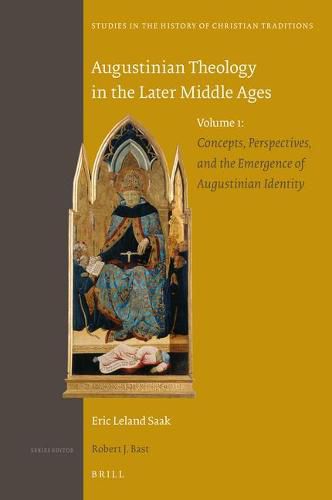Readings Newsletter
Become a Readings Member to make your shopping experience even easier.
Sign in or sign up for free!
You’re not far away from qualifying for FREE standard shipping within Australia
You’ve qualified for FREE standard shipping within Australia
The cart is loading…






The culmination of thirty years of research, Eric Leland Saak’s Augustinian Theology in the Later Middle Ages offers a comprehensive, new interpretation of late medieval Augustinianism. The first of a two-volume work, the present book sets the stage and analyzes the conceptual and methodological structures requisite for interpreting the reception of Augustine in the later Middle Ages historically, together with explicating the first two of the four pillars of Augustinian theology: the Augustinian Hermits’ political theology; the teaching in the Order’s schools; the Order’s university theology; and its moral theology. Holistically fused with the Order’s religious identity, these distinct yet interconnected components of Augustinian theology, rather than a narrow, theologically defined anti-Pelagianism, provided the context for the emergence of the Reformation.
$9.00 standard shipping within Australia
FREE standard shipping within Australia for orders over $100.00
Express & International shipping calculated at checkout
The culmination of thirty years of research, Eric Leland Saak’s Augustinian Theology in the Later Middle Ages offers a comprehensive, new interpretation of late medieval Augustinianism. The first of a two-volume work, the present book sets the stage and analyzes the conceptual and methodological structures requisite for interpreting the reception of Augustine in the later Middle Ages historically, together with explicating the first two of the four pillars of Augustinian theology: the Augustinian Hermits’ political theology; the teaching in the Order’s schools; the Order’s university theology; and its moral theology. Holistically fused with the Order’s religious identity, these distinct yet interconnected components of Augustinian theology, rather than a narrow, theologically defined anti-Pelagianism, provided the context for the emergence of the Reformation.